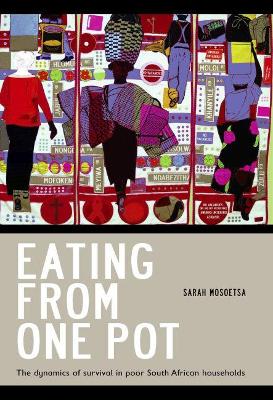As poverty and unemployment deepen in contemporary South Africa, the burning question becomes, how do the poor survive? This title provides a compelling answer. Based on intensive fieldwork, it shows how many African households are on the brink of collapse. That they keep going at all can largely be attributed to the struggles of older women against poverty. They are the fulcrum on which household survival turns. The title describes how households in two different areas in KwaZulu-Natal are sites of both stability and conflict. As one of the interviewees put it: 'We eat from one pot and should always help each other.' Yet the stability of family networks is becoming fragile because of the enormous burden placed on them by unemployment and unequal power relations. Many of the households are extremely poor, relying on a total monthly income of less than R800. People live on little more than maize meal, tea and sugar. However, the title also demonstrates that they are not passive victims of poverty. Women, in particular, show impressive qualities of energy and resourcefulness.
They engage in a number of informal sector activities, and many are active in a range of faith, and community and home-based care associations. Eating from One Pot draws on Amartya Sen's notion of co-operative conflict to argue that in times of crisis there is more conflict than cooperation in the poorest households. Poverty seriously undermines the collective character of households and creates divisions along generational and gendered lines. The title documents the humiliation many feel at the loss of their role as provider, and the resulting escalation of domestic violence and alcohol abuse. Sarah Mosoetsa conducted more than 100 intensive interviews. In the first three chapters she provides a vivid account of individual lives, perceptions and experiences. The case studies are then discussed in relation to the restructuring of the country's welfare and social policies, and the extension of social grants. Mosoetsa argues that these policies shape the livelihoods that people pursue in order to survive under desperate conditions, but fail to address the root causes of poverty and inequality.
- ISBN10 1868145336
- ISBN13 9781868145331
- Publish Date 1 April 2011
- Publish Status Active
- Out of Print 12 March 2021
- Publish Country ZA
- Imprint Wits University Press
- Format Paperback
- Pages 192
- Language English
